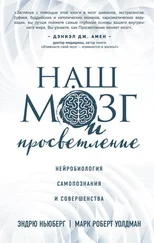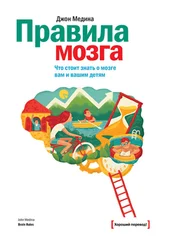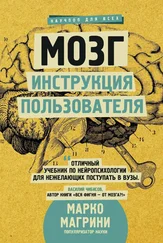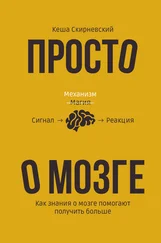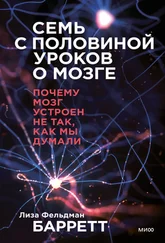1.M. Takeda, H. Tachibana, N. Shibuya, Y. Nakajima, B. Okuda, M. Sugita, and H. Tanaka, “Pure Anomic Aphasia Caused by a Subcortical Hemorrhage in the Left Temporo-Parieto-Occipital Lobe,” Internal Medicine Journal 38, no. 3 (March 1999): 293–295.
2.J.S. Johnson and E.L. Newport, “Critical Period Effects in Second Language Learning: The Influence of Maturational State on the Acquisition of English as a Second Language,” Cognitive Psychology 21, no. 1 (January 1989): 60–99.
3.J.K. Hartshorne, J.B. Tenenbaum, and S. Pinker, “A Critical Period for Second Language Acquisition: Evidence from 2/3 Million English Speakers,” Cognition 177 (August 2018): 263–277.
4.M. Brysbaert, M. Stevens, P. Mandera, and E. Keuleers, “How Many Words Do We Know? Practical Estimates of Vocabulary Size Dependent on Word Definition, the Degree of Language Input and the Participant’s Age,” Frontiers in Psychology 7 (July 2016): 1116.
5. P. Broca, “Remarks on the Seat of the Faculty of Articulated Language, Following an Observation of Aphemia (Loss of Speech)” trans. C.D. Green, Bulletin de la Societe Anatomique 6 (1861): 330–357.
6.K. Amunts, A. Schleicher, U. Burgel, H. Mohlberg, H.B. Uylings, and K. Zilles, “Broca’s Region Revisited: Cytoarchitecture and Intersubject Variability,” Journal of Comparative Neurology 412, no. 2 (1999): 319–341.
7.M.S. Gazzaniga and R.W. Sperry, “Language after Section of the Cerebral Commissures,” Brain 90, no. 1 (March 1967): 131–148.
8.T. Rasmussen and B. Milner, “Clinical and Surgical Studies of the Cerebral Speech Areas in Man,” in Cerebral localization, eds. K.J. Zulch, O. Creutzfeld, and G.C. Galbraith (New York: SpringerVerlag, 1975), 238–257.
9.A.K. Lindell, “In Your Right Mind: Right Hemisphere Contributions to Language Processing and Production,” Neuropsychol Review 16, no. 3 (September 2006): 131–148.
10.N. Geschwind, “The Organization of Language and the Brain,” Science 170, no. 3961 (November 1970): 940–944.
11.P. Tremblay and A.S. Dick, “Broca and Wernicke are Dead, or Moving Past the Classic Model of Language Neurobiology,” Brain and Language 162 (November 2016): 60–71.
12.A. Cooke, E.B. Zurif, C. DeVita, D. Alsop, P. Koenig, J. Detre, J. Gee, M. Pinango, J. Balogh, and M. Grossman, “Neural Basis for Sentence Comprehension: Grammatical and Short-Term Memory Components,” Human Brain Mapping 15, no. 2 (February 2002): 80–94.
13.N. Nishitani, M. Schurmann, K. Amunts, and R. Hari, “Broca’s Region: From Action to Language,” Physiology (Bethesda) 20 (February 2005): 60–69.
14.J.R. Binder, “The Wernicke Area: Modern Evidence and a Reinterpretation,” Neurology 85, no. 24 (December 2015): 2170–2175.
15.Tremblay and Dick, “Broca and Wernicke are Dead,” 60–71.
16.V. Fromkin, S. Krashen, S. Curtiss, D. Rigler, and M. Rigler, “The Development of Language in Genie: A Case of Language Acquisition Beyond the ‘Critical Period.’ ” Brain and Language 1 (1974): 81– 107.
17.M. Dapretto and E.L. Bjork, “The Development of Word Retrieval Abilities in the Second Year and Its Relation to Early Vocabulary Growth,” Child Development 71, no. 3 (May-June 2000): 635–648.
18.J.S. Johnson and E.L. Newport, “Critical Period Effects in Second Language Learning: The Influence of Maturational State on the Acquisition of English as a Second Language,” Cognitive Psychology 21, no. 1 (January 1989): 60–99.
19.Там же.
20. O. Adesope, T. Lavin, T. Thompson, and C. Ungerleider, “A Systematic Review and Meta-Analysis of the Cognitive Correlates of Bilingualism,” Review of Educational Research 80, no. 2 (2010): 207–245.
21E. Bialystok, F.L. Craik, and M. Freedman, “Bilingualism as a Protection against the Onset of Symptoms of Dementia,” Neuropsy-chologia 45 (2007): 459–464.
22.P.K. Kuhl, F.M. Tsao, and H.M. Liu, “Foreign-Language Experience in Infancy: Effects of Short-Term Exposure and Social Interaction on Phonetic Learning,” Proceedings of the National Academy of Sciences of the United States of America 100, no. 15 (July 2003): 9096–9101.
1.A. Dolan, “Always Smiling, the Stroke Patient Who Can’t Feel Sad,” The Daily Mail, August 12, 2013, Health, http://www.dailymail. co.uk/health/article-2389891/Always-smiling-stroke-patient-feel-sad-Condition-leaves-Grandfather-permanently-happy-prone-fits-giggles-inappropriate-times.html.
2.D.J. Felleman and D.C. Van Essen, “Distributed Hierarchical Processing in the Primate Cerebral Cortex,” Cerebral Cortex 1, no. 1 (1991): 1-47.
3.P. Broca, “Comparative Anatomy of the Cerebral Convolutions: The Great Limbic Lobe and the Limbic Fissure in the Mammalian Series,” Journal of Comparative Neurology 523, no. 17 (December 2015): 2501–2554.
4.J.W Papez, “A Proposed Mechanism of Emotion,” Archives of Neurology and Psychiatry 38 (1937): 725–743.
5.P.D. MacLean, “Some Psychiatric Implications of Physiological Studies on Frontotemporal Portion of Limbic System (Visceral Brain),” Electroencephalography and Clinical Neurophysiology 4, no. 4 (November 1952): 407–418.
6.M.S. George, T.A. Ketter, P.I. Parekh, B. Horwitz, P. Herscovitch, and R.M. Post, “Brain Activity during Transient Sadness and Happiness in Healthy Women,” American Journal of Psychiatry 152, no. 3 (March 1995): 341–351.
7.H.S. Mayberg, M. Liotti, S.K. Brannan, S. McGinnis, R.K. Mahurin, P.A. Jerabek, J.A. Silva, et al., “Reciprocal Limbic-Cortical Function and Negative Mood: Converging PET Findings in Depression and Normal Sadness,” American Journal of Psychiatry 156, no. 5 (May 1999): 675–682.
8.P.E. Greenberg, R.C. Kessler, H.G. Birnbaum, S.A. Leong, S.W. Lowe, P.A. Berglund, and P.K. Corey-Lisle, “The Economic Burden of Depression in the United States: How Did It Change between 1990 and 2000?” Journal of Clinical Psychiatry 64, no. 12 (December 2003): 1465–1475.
9.B. Voinov, WD. Richie, and R.K. Bailey, “Depression and Chronic Diseases: It Is Time for a Synergistic Mental Health and Primary Care Approach,” The Primary Care Companion for CNS Disorders 15, no. 2 (2013): PCC.12r01468.
10.A. Mykletun, O. Bjerkeset, S. Overland, M. Prince, M. Dewey, and R. Stewart, “Levels of Anxiety and Depression as Predictors of Mortality: The HUNT Study,” British Journal of Psychiatry 195, no. 2 (August 2009): 118–125.
11E.A. Osuch, T.A. Ketter, T.A. Kimbrell, M.S. George, B.E. Benson, M.W. Willis, P. Herscovitch, and R.M. Post, “Regional Cerebral Metabolism Associated with Anxiety Symptoms in Affective Disorder Patients,” Biological Psychiatry 48, no. 10 (November 2000): 1020–1023.
12.Mayberg et al., “Reciprocal Limbic-Cortical Function and Negative Mood,” 675–682.
13.T. Hajek, J. Kozeny, M. Kopecek, M. Alda, and C. Hoschl, “Reduced Subgenual Cingulate Volumes in Mood Disorders: A MetaAnalysis,” Journal of Psychiatry & Neuroscience 33, no. 2 (March 2008): 91–99.
14.D.L. Dunner, A.J. Rush, J.M. Russell, M. Burke, S. Woodard, P. Wingard, and J. Allen, “Prospective, Long-Term, Multicenter Study of the Naturalistic Outcomes of Patients with TreatmentResistant Depression,” Journal of Clinical Psychiatry 67 (2006): 688–695.
15.M.T. Berlim, A. McGirr, F. Van den Eynde, M.P. Fleck, and P. Giacobbe, “Effectiveness and Acceptability of Deep Brain Stimulation (DBS) of the Subgenual Cingulate Cortex for TreatmentResistant Depression: A Systematic Review and Exploratory Meta-Analysis,” Journal of Affective Disorders 159 (April 2014): 31–38.
16.K.S. Choi, P. Riva-Posse, R.E. Gross, and H.S. Mayberg, “Mapping the ‘Depression Switch’ during Intraoperative Testing of Subcallosal Cingulate Deep Brain Stimulation,” JAMA Neurology 72, no. 11 (November 2015): 1252–1260.
Читать дальше
Конец ознакомительного отрывка
Купить книгу

